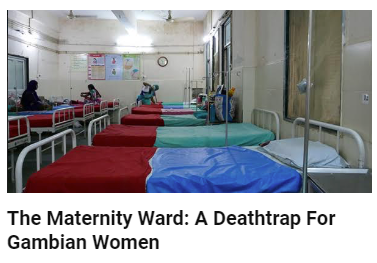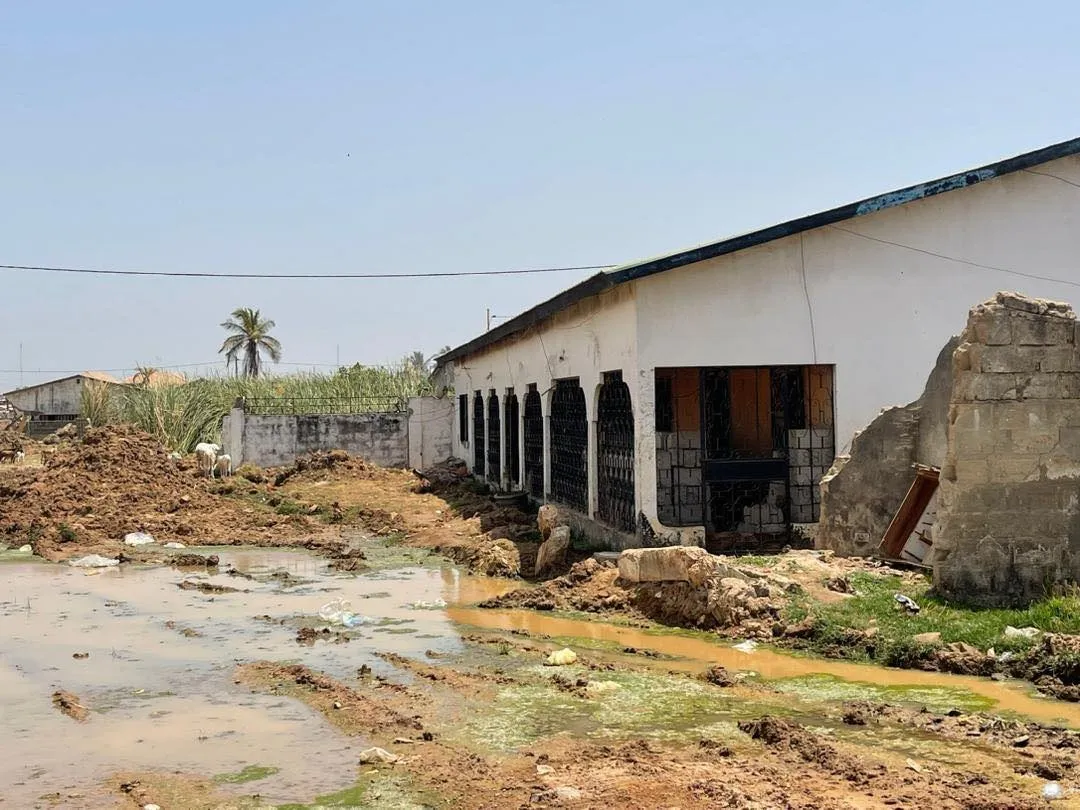
By Aminata E.Sanyang
Maternal mortality is a global menace that has shoved mothers to succumb to the cold hands of death. Childbirth has become the toughest battle for Gambian mothers, plunged in fear to give birth in the eon of a failed medical system.
In the past years, The Gambia has recorded high number of maternal deaths due to the unavailability of basic healthcare delivery to curtail challenges. Many hinged this predicament on the lack of a sophisticated health system, a desolate medical catastrophe disregarded by the government and failing to shift meaningful investments to vital issues such as reforming the healthcare system to efficiently deliver healthcare services to all Gambians and annihilate grave medical problems such as maternal mortality.
Many accused health workers of negligence which has caused severe fatalities, but these claims are debunked by some healthcare workers, claiming the unavailability of resources is the contributing factor, amid having unqualified healthcare workers in certain hospitals.
Nurses are concerned about the misinformation that many continue to spread on social media concerning maternal deaths, with unconfirmed narrations composed to escalate tension within the public.
The primary caregivers believed many maternal death stories found online are twisted to instigate hatred towards the health workers.
Bintou Jallow lost her sister during labour, with the mother and the baby dying after severe complications. “The doctor told us she lacked blood and we toiled and moiled to get someone to donate her. But before we could get a donor, it was too late; she experienced severe complications and died afterwards,” Bintou told The Alkamba Times.
Lack of blood in hospitals dominates the concerns raised by the public, questions continue to coil around blood being donated by the armed forces and other blood donors to save lives. As scarcity of blood rockets, doubts are awakened towards hospitals’ equitable delivery of the blood to the patients.
The recent protest by the nurses signals the frustration faced by the caregivers, it is an unblemished showcase of a frail medical system that continues to diminish daily. Health workers are said to continuously lack medical supplies to execute their duties whilst being underpaid.
The high rate of maternal deaths in the Gambia triggered the formation of a movement dubbed Gambian Women’s Lives Matter, a social movement meant to save Gambian women from dying while giving life.
Speaking to The Alkamba Times, Mballing Cham from the Gambian Women’s Lives Matter movement, believes the healthcare system is unfunded and is expensive. She called on the Government to invest in this area, since the lack of standard facilities is claiming the lives of these women.
“From our record we have cases where women die as a result of sustained complications from Caesarean Surgery (C-Section) or due to lack of blood. In my view, these are avoidable circumstances,” said Mballing Cham.
Having been recently rejected a permit to hold a protest, and later granted the permit, Gambian Women’s Lives Matter movement unveiled efforts invested to collaborate with Government but Government turned unresponsive, amid facing accusations of political affiliations.
Lamin Fatty, whose wife is heavily pregnant, is facing enormous worries. “I might lose my wife if I take her to the hospital. Would she receive the required care to deliver safely?” he lamented
Omar Malleh Ceesay, a trained nurse and the Public Relations Officer of Bundung Maternal and Child Health Hospital, revealed to The Alkamba Times that negligence might play a role but most maternal deaths are beyond the nurses and doctors.
”Unavailability of blood and gynae emergencies are beyond nurses and doctors most of the time. Late bookings for antenatal services and poor nutritional status of women before pregnancy and during pregnancy are mostly issues beyond healthcare workers,” he said.
According to Dr Mustapha Bittaye, Director of Health Services at the Ministry of Health, there is a significant decrease in maternal mortality compared to the past years, adding that the Ministry is ensuring the numbers of trained nurses are increased amid providing ambulances to ease mobility for pregnant women and people in urgent need of healthcare.
Whereas resources are lacking in hospitals, emphasis is placed on women reporting late to health facilities. This stance, according to health workers, could result to severe complications during childbirth. Whilst they advised pregnant women to take healthcare seriously and seek medical services early to avoid hitches, there are significant number of doctors and nurses who have utmost passion for the job, ready to save lives and deliver maximum healthcare services to the people.
It is now for Government to invest sufficiently to the healthcare system. It’s now a collective task to save Gambian women from Maternal Mortality.
This article was first published on the Alkamba Times on 28th/9/2021.
Source: aesexpressions
.webp)


